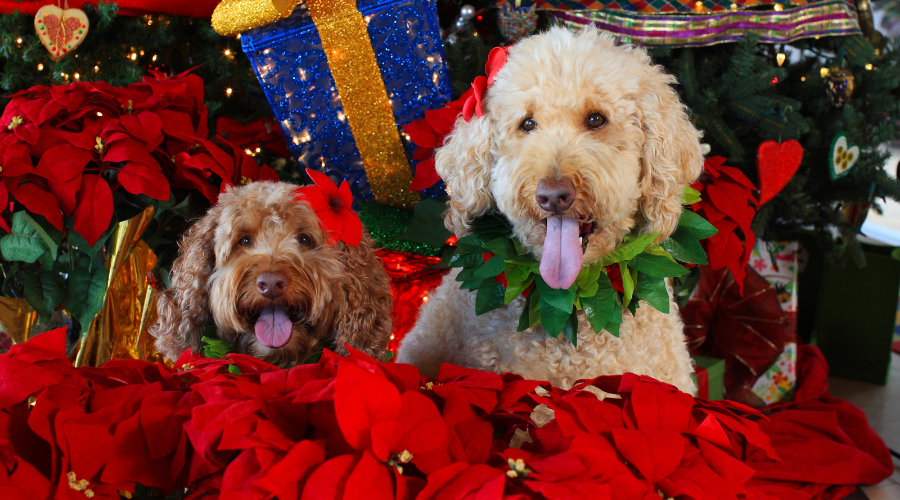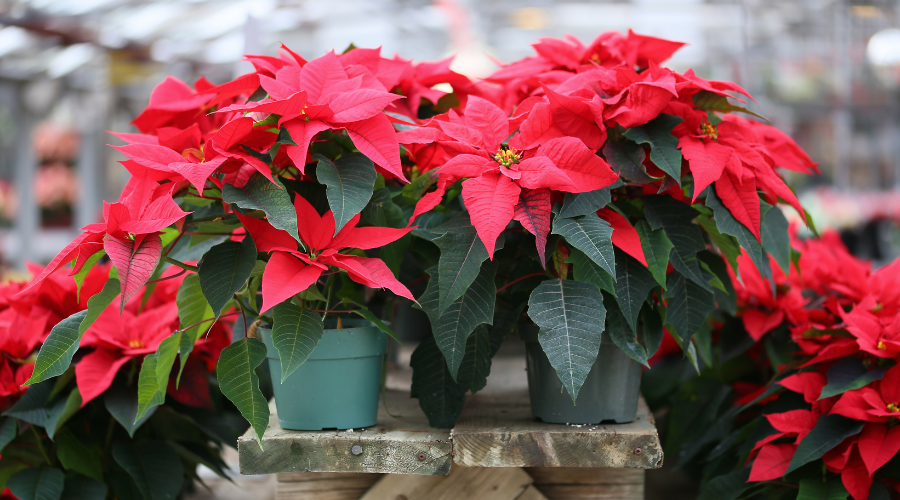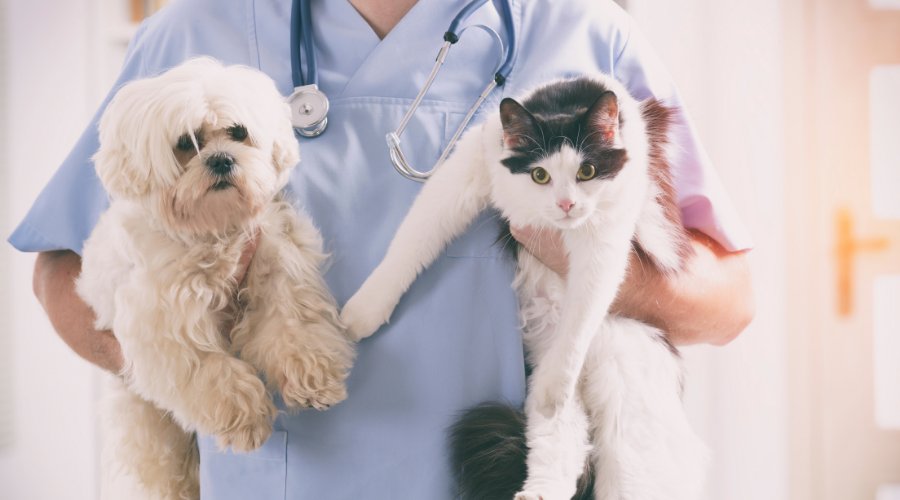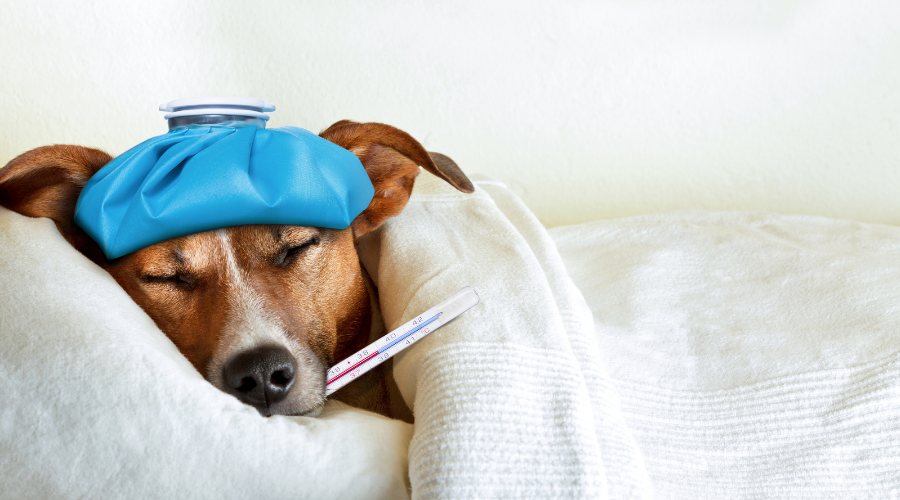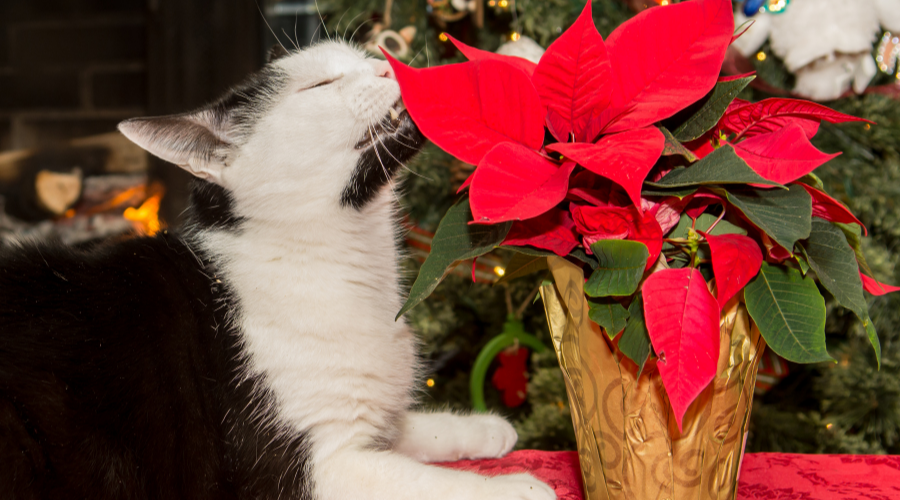When I first saw a poinsettia plant in the wild in Australia in the Kuranda rainforest, I was shocked. I thought these were… well, I’d never thought about them in the wild before! It made sense that they'd grow in a rainforest - they're a tropical plant. Poinsettias are a beautiful, exciting plant, especially when they’re in gorgeous planters, that many of us like to keep around during the holidays. Most of us don’t think of them as existing in the “real world.”
But they do – and because they do, their source of self-defense is being poisonous to animals who otherwise might snack on them. Animals, like our cats and dogs. And since I have a cat that has a particular penchant for nibbling on all things leafy, I, like you, had the question: are poinsettias poisonous to cats and dogs, too?
Poinsettia Toxicity
Image credits: ZoomTravels via Canva
Unfortunately, the answer is yes, this festive plant is poisonous for cats and dogs. Thankfully, they are only mildly so, according to the Pet Poison Helpline. The milky white sap found in the plants is called diterpenois euphorbol esters and saponin-like detergents. That’s a mouthful! But let me explain.
Basically, if these gooey saps are ingested by your critters, they’ll likely show mild signs of drooling (more so than usual in your slobbery pals), vomiting, and occasionally diarrhea. If it gets on their skin, the pets will have dermal irritation (or skin irritation), meaning redness, swelling, and itchiness. Eye exposure may result in mild irritation there.
Is Medical Treatment Required?
Image credits: humonia via Canva
In most cases, the symptoms of poinsettia poisoning is self-limiting and won’t require medical attention. So, unless the critter shows severe symptoms or persistent symptoms, they should clear out the toxins naturally without too much more said and nothing done. Their stomach upset should pass after a bit of time.
Severe Symptoms
Image credits: Damedeeso via Canva
If, however, your pet shows severe symptoms after snacking on these popular holiday plants, medical attention should be sought. There is no cure for poinsettia poisoning, but your vet may be able to help alleviate the worst of the symptoms.
Excessive symptoms would include:
- Incessant vomiting
- Intense licking of lips
- Severe eye irritation
- On-going diarrhea
In any of these cases, your pet may need rehydration or some skin care help to relieve the symptoms.
How to Keep Your Pets Out of Houseplants
Image credits: JasonOndreicka via Canva
Though eating a poinsettia wouldn’t kill my cat, I’d prefer she didn’t get into them at all. So, these precautions and helps are recommended for helping keep them away from the mildly toxic plants (and any other plants you want to save from kitty paws and puppy lips!).
- Make the plants smell bad to pets by sprinkling cayenne pepper around the leaves
- For citrus-aversive cats, place lemon or orange peels in the pots
- Spray the leaves directly with diluted lemon juice or orange juice. Avoid essential oils, however, as these are toxic for cats and dogs!
- Create an off-limits plant room or place plants in an indoor greenhouse (this is what we do!)
- Or cage the plants with wire shelving units, placing plants further back in cages to keep long-pawed kitties away
- Give your cat or dog plants they may eat – plant some catnip in plastic pots, for example
Better Safe Than Sorry
Ultimately, if your cat or dog does wind up eating some poinsettia, even if they’ve evacuated the plant from their system, you should still call the vet and seek direction from there. The vet can ask questions to help guide you through the care for your pet as well as answer any questions you may have regarding the animal’s health and safety from here out.

